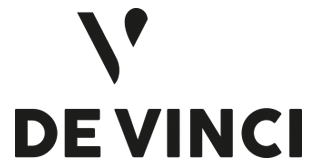@article{rezaee_vessal_3215,
title = {Multisensory healing: transformative service encounters in nonpharmacological therapies for cancer patients' well-being},
author = {Saeedeh Rezaee Vessal and Mariem El Euch Maalej and Judith Partouche-Sebban and Alain Toledano},
url = {https://www.emerald.com/insight/content/doi/10.1108/jsm-12-2023-0478/full/html},
year = {2024},
date = {2024-11-01},
journal = {Journal Of Services Marketing},
volume = {38},
number = {8},
pages = {1099-1113},
abstract = {Purpose
This study aims to explore the impact of nonpharmacological therapies on cancer patients' daily illness management and long-term well-being. It focuses on the design and effects of immersive multisensory workshops, including therapies such as yoga, music therapy and visual imagery. By examining individuals' experiences before, during and after the service experience, the study aims to provide comprehensive insights into the transformative effects of these immersive multisensorial experiences from the individuals' perspectives.
Design/methodology/approach
From November 2021 to March 2023, the authors conducted 13 interviews and 3 focus groups (10 participants in total) among cancer patients. Thematic analysis of recorded interviews and focus groups revealed recurring patterns, key themes and meaningful insights from participants' narratives.
Findings
The findings provide insights into individuals' journey of service experiences among cancer patients from a user perspective. By framing the results within the service encounters model, individuals' journey of this immersive multisensory experience is studied in three different periods: the pre-core, the core and the post-core service encounter. The pre-core service encounter includes activities such as information gathering to answer concerns and setting expectations, with the therapy. The core service encounter encompasses the immersive environmental experience, which includes multisensory integration and activity immersion, body-mind reconnection, as well as engaging interactive experiences with service providers, other patients and internal engagement. The post-core service encounter reflects the cognitive, psychological, behavioral and spiritual outcomes of the service.
Originality/value
This paper sheds light on the design of immersive multisensory workshops as nonpharmacological therapy. Adopting a user-focused approach using the service encounters framework helps clarify various aspects of this therapy and its effects on patients' reconnection with their bodies and well-being. This research offers valuable insights for designing effective multisensory therapeutic environments for chronic patients to improve the quality of health-care services.},
keywords = {},
pubstate = {published},
tppubtype = {article}
}













